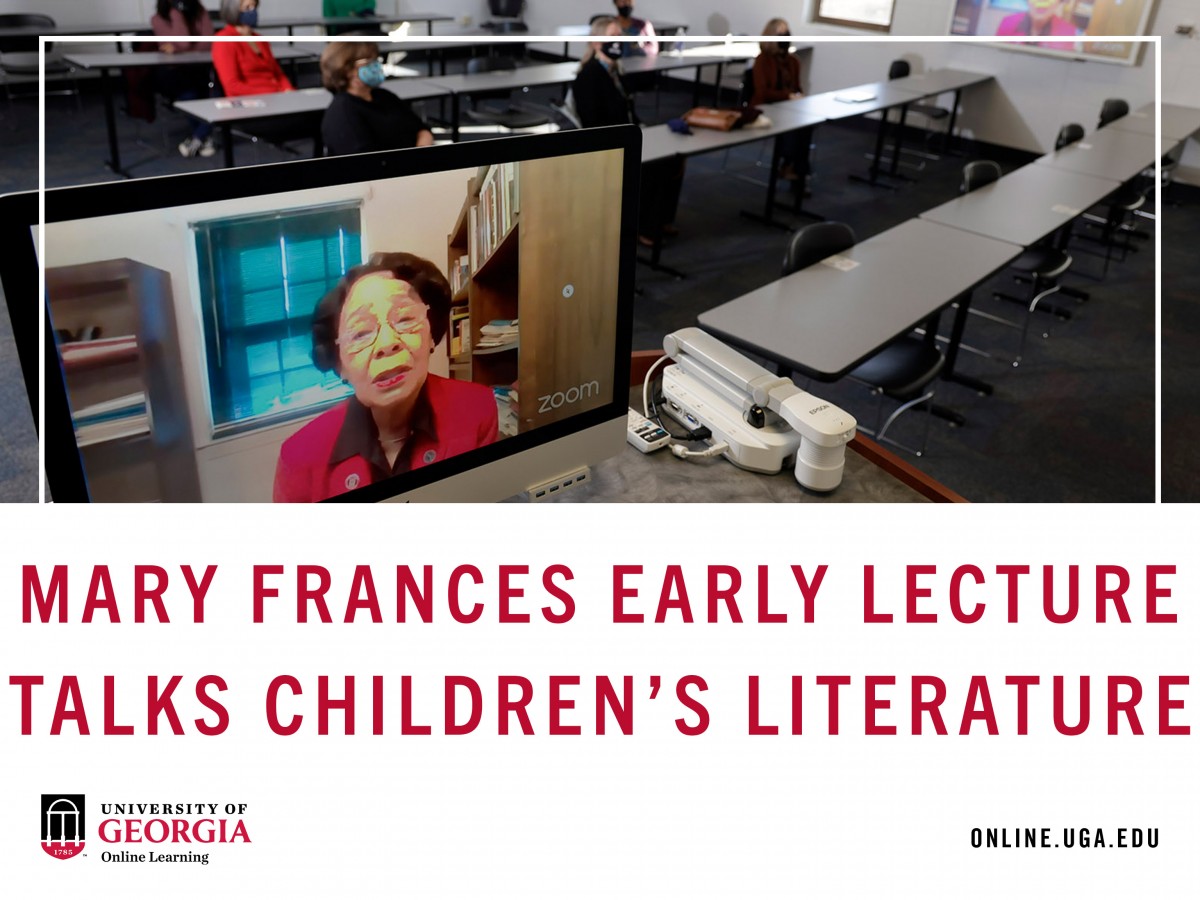Distinguished professor discusses the power of children’s literature
Distinguished professor discusses the power of children’s literature
Given Nikki Giovanni’s vast experience, particularly in the world of literature, it wasn’t a complete surprise that she chose to speak about the power of children’s literature and spirituals for the 21st annual Mary Frances Early Lecture.

Following a statement by President Jere W. Morehead and an introduction from College of Education doctoral candidate Ashley Love, Giovanni spoke virtually on Feb. 2. This Mary Frances Early Lecture also honored the 60th anniversary of desegregation at UGA.
Giovanni has earned an unprecedented seven NAACP Image Awards, was nominated for a Grammy and named a finalist for the National Book Award. She was named woman of the year on multiple occasions, won the Langston Hughes Medal and was named one of Oprah Winfrey’s 25 living legends. A South American bat species was named in her honor: Micronycteris giovanniae.
On top of that, she’s also a university distinguished professor and has been on the faculty at Virginia Tech since 1987.
Giovanni explained the sheer power that children’s literature holds and said that children’s books are a great way of integrating important messages into the next generation.
“I’m a big fan of children’s literature because it’s literature that begins for us to understand—for the children to understand—how important they are,” she said. “As they begin to grow, they remember these. They remember what their mothers said, they remember what their grandmother said, and they remember listening to folk tales. But they also remember listening to the songs that were sung.”
Although she spoke in depth about the messaging in classics like “Rapunzel,” “Little Red Riding Hood” and “Snow White,” Giovanni also cited examples of the real wolves we face today, in the form of political turmoil and civil unrest.
Giovanni spoke on the devastating legacy of slavery and some reminders of the discrimination the Black community has faced for hundreds of years: the case Plessy v. Ferguson, the murder of 14-year-old Emmett Till in 1955, Rosa Parks’ arrest that same year, and the attack on John Lewis and others as they crossed the Edmund Pettus Bridge in Selma in 1965.
“We have to look at our story,” she said. “We have to look at the folktales. I will be glad when one day, we look at the folktales, and we compare them and put them with the spirituals, because there’s nothing as gracious.”
The importance of children’s literature is especially relevant during times of civil unrest, political turmoil and even during a pandemic.
“I want us to appreciate what has been taught and what we are learning,” she said.
Following Giovanni’s lecture, Mary Frances Early also spoke, mentioning her fondness of Giovanni’s poetry and the progress that has been made at UGA during these past decades, particularly since 1962 when Early became the first Black graduate of UGA.
Early said she didn’t attend the graduate school in the ’60s to become the first Black degree recipient from the university. She didn’t earn her degree for UGA, either. Early said she earned that degree for herself and in the hope to inspire a future generation to follow in her footsteps and pursue their dreams.
“I’m pleased that this lecture falls within the confines of the 60th anniversary of UGA’s desegregation because I was part of that desegregation. It was something I felt I had to do,” Early said. “I wanted to help them in their struggle to integrate the university, albeit at the graduate level, and I wanted to help our university to become a place for all … and I have never regretted that decision.”
Both Early and Giovanni recognized that there are still things to be done to bring Early’s vision to life.
“I appreciate that the university invited me to be a part of this celebration of Mary Frances Early, of a college being named for her, because she too has shown us: We are not going to be afraid. We will do what we have to do so we can carry forward,” Giovanni said. “The spirituals teach us so much about the bravery of our people, of the bravery of the people who said, ‘No, we can do better than this.’”
